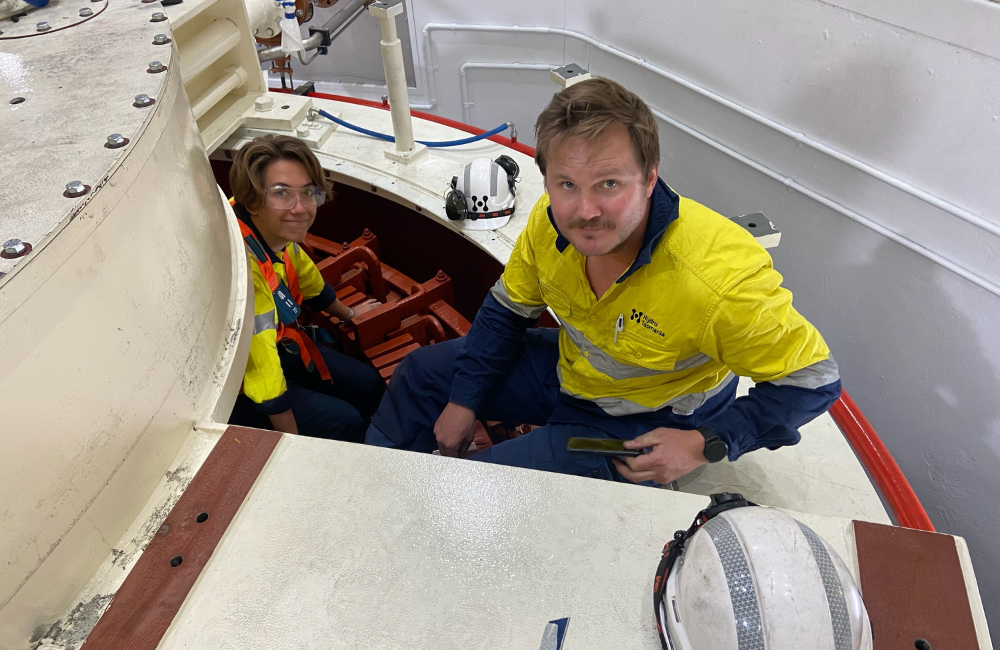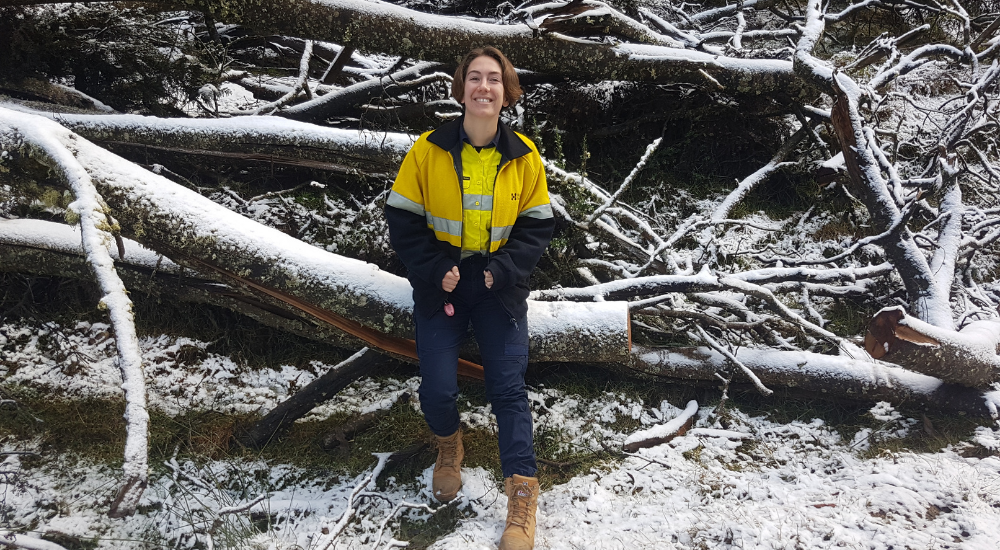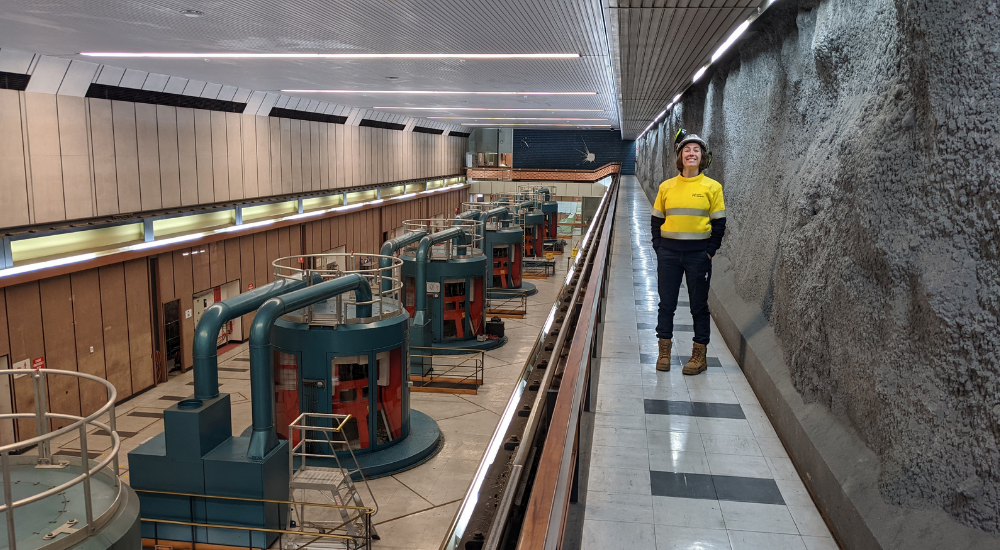Hydro Tasmania
Thea Pulbrook
Graduate Electrical Engineer at Hydro Tasmania
Bachelor of Philosophy (Honours) at The University of Western Australia (UWA)
What's your job about?
Hydro Tasmania is the largest producer of renewable energy in Australia. We have about 30 hydroelectric power stations around Tasmania, each with their own arrangements, different technologies, and plenty of quirks.
As a graduate, I get to rotate through different teams and tryout the different engineering roles. My first rotation was with the engineers who respond to faults and unexpected issues. In this team you never know which station you’re going to next – you collect data, solve mysteries, and come up with creative solutions.
Now I’m in the team that deal with planned work. Here you get a long-term project like a station upgrade, and you work on it through to the end. These engineers learn their hydro stations inside out, and make sure all the details are up to scratch.
I’m looking forward to a future rotation in Hydro Group’s consulting business, Entura. As a consultant you get highly technical work, and opportunities to design new infrastructure for a range of different clients.

What's your background?
I grew up on a farm about 4.5 hours north of Perth, WA. The name of the town is Mingenew, said to mean “place of many ants” in Wadjarri. I went to boarding school in a bigger town about 100 km away, then moved down to Perth for uni. In Perth, I studied both electrical engineering and chemistry. I also became unreasonably obsessed with ultimate frisbee and even got to play internationally. Since starting engineering, it’s been my goal to work in renewable energy, so I was excited to apply for the Hydro grad program in March 2020.
The hiring process involved submitting a CV, then sitting one of those spooky online screenings where you record short video answers. The new pandemic world meant I couldn’t attend the usual group interview in Tassie, so we were given a real engineering task to solve, not unlike a uni assignment. After this, there was a video interview with real people (much less scary than the faceless one). Soon enough, I was packing my bags for Tasmania. After surviving my first winter here, I’ve decided that Hobart is not so bad as a place to live.
Could someone with a different background do your job?
I’m pretty sure the engineering degree is non-negotiable for the grad engineer role, but you don’t need to have specialized in a particular area. We have power engineers who specialize in mechatronics and mechanical engineers who study renewable engineering. I’d say the most important things are people skills and a willingness to get involved and learn. Weirdly, everyone here seems to have outdoors hobbies like fishing or golf (a Tassie thing?), so maybe memorize a few types of fish just in case you ever need to impress someone.

What's the coolest thing about your job?
I love getting out to power stations and seeing how all these hugely complex parts come together. There’s so much to learn and that’s the coolest thing about being an engineer. Everyone at Hydro is super happy to answer questions and share what they know as well, especially if you’re a grad!

What are the limitations of your job?
The biggest limitation I’ve faced is that I often don’t have a lot of warning or control over when I am called out to different power stations around the state. As fun as it is to get hands-on experience, it can be quite tough to keep regular evening commitments like sports, as I’m usually home late on those days.
3 pieces of advice for yourself when you were a student...
- Don’t stress about not remembering those formulas from first year or not having hands-on skills. Once you start your first grad job, that’s when you really start learning the job (and no one expects more than that)
- You don’t have to stay in your home state after uni – have an adventure
- Join extra-curricular activities as much as you can! Employers love that and so does your mental health